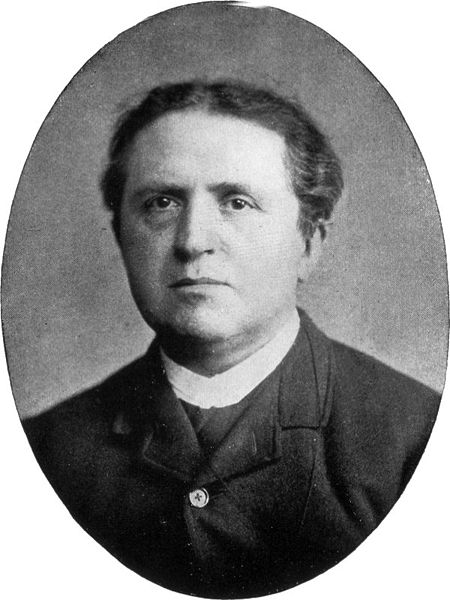 Yesterday I demonstrated that Francis Schaeffer was not a “Dominionist”, despite the conspiracy theories of the Dominionismists. Today (thanks again to Jeremy Pierce for the link) I can write that the other main alleged conspirator, C. Peter Wagner, is not a “Dominionist” either, at least not in anything like the sense of the word used by the conspiracy theorists. Wagner has written his own new “urgent message” explaining his position on these matters. Here is the most relevant section:
Yesterday I demonstrated that Francis Schaeffer was not a “Dominionist”, despite the conspiracy theories of the Dominionismists. Today (thanks again to Jeremy Pierce for the link) I can write that the other main alleged conspirator, C. Peter Wagner, is not a “Dominionist” either, at least not in anything like the sense of the word used by the conspiracy theorists. Wagner has written his own new “urgent message” explaining his position on these matters. Here is the most relevant section:
Dominionism. This refers to the desire that some of my friends and I have to follow Jesus and do what He wants. One of the things He does want He taught us to pray for in the Lord’s Prayer: “Your kingdom come, Your will be done on earth as it is in heaven.” This means that we do our best to see that what we know is characteristic of heaven work its way into the warp and woof of our society here on earth. Think of heaven: no injustice, no poverty, righteousness, peace, prosperity, no disease, love, no corruption, no crime, no misery, no racism, and I could go on. Wouldn’t you like your city to display those characteristics?
But where does dominion come in? On the first page of the Bible, God told Adam and Eve to “fill the earth and subdue it; have dominion over the fish of the sea, etc.” (Genesis 1:28). Adam, Eve, and the whole human race were to take dominion over the rest of creation, but Satan entered the picture, succeeded in usurping Adam’s dominion for himself and became what Jesus calls “the ruler of this world” (John 14:30). When Jesus came, he brought the kingdom of God and He expects His kingdom-minded people to take whatever action is needed to push back the long-standing kingdom of Satan and bring the peace and prosperity of His kingdom here on earth. This is what we mean by dominionism.
A theocracy. The usual meaning of theocracy is that a nation is run by authorized representatives of the church or its functional religious equivalent. Everyone I know in NAR would absolutely reject this idea, thinking back to Constantine’s failed experiment or some of the oppressive Islamic governments today. The way to achieve dominion is not to become “America’s Taliban,” but rather to have kingdom-minded people in every one of the Seven Mountains: Religion, Family, Education, Government, Media, Arts & Entertainment, and Business so that they can use their influence to create an environment in which the blessings and prosperity of the Kingdom of God can permeate all areas of society.
Thus to Peter Wagner and his fellows in the loosely structured New Apostolic Reformation, “dominion” means something quite different from what the conspiracy theorists are alleging, not at all like Rushdoony’s Christian Reconstructionism – and rather different from what Schaeffer believed. Is there anything here which any Christians can object to?
The best thing that can be said about the “Dominionismists” is that they are ignorant.







 Roger Olson asks
Roger Olson asks 

